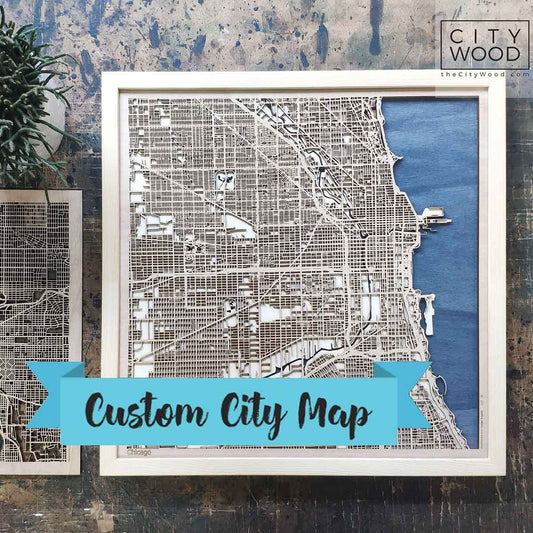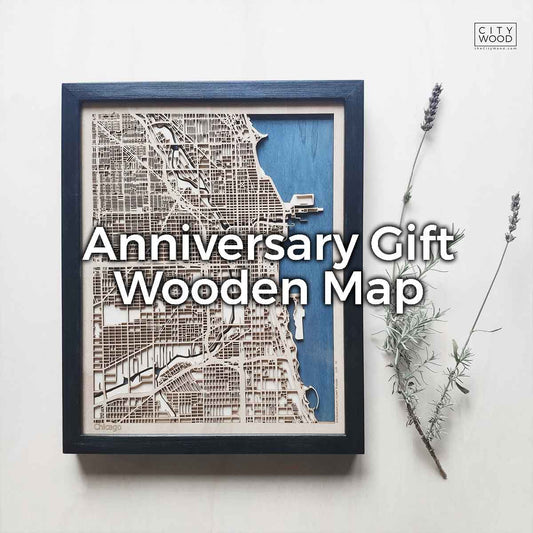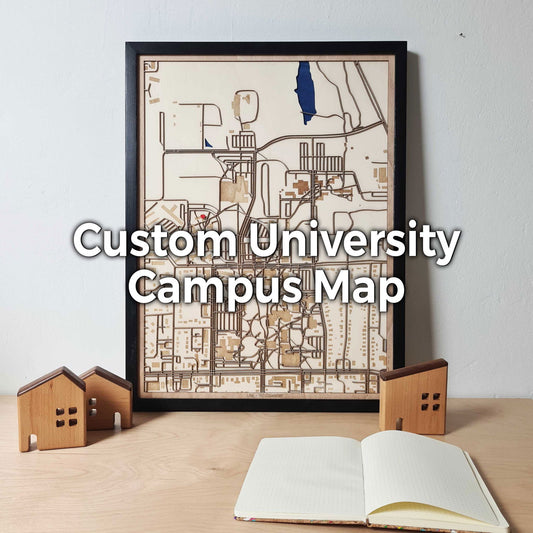There are moments when "goodbye" feels too heavy, too final—too sharp to fit the softness of the relationship or moment it tries to close. Sometimes we want to leave, or let go, or move forward, without drawing that exact line in the sand that the word "goodbye" can so often make. We want to drift gently, to turn a page, not slam a door.
This desire to say goodbye without actually saying it is more common—and more human—than most of us admit. It shows up in how we leave jobs, relationships, conversations, and even cities. Sometimes we want to be remembered not for how we left, but for how we stayed—up until the very last moment.
And that’s where the idea of quiet departures, of symbolic farewells, of custom-made gestures like a wooden map of a place that once held meaning—begins to speak more clearly than the word “goodbye” ever could.
What word can I use instead of goodbye?
When you feel the urge to say goodbye without using the word itself, consider instead the message you want to leave behind. Often, we’re not just saying “I’m leaving,” but rather something more layered: I cared, This mattered, You’ll still be with me, This isn’t the end.
That’s why phrases like:
-
“Take care,”
-
“Until next time,”
-
“See you soon,”
-
“Stay safe,”
-
“You’ve got this”
…can say more than the word “goodbye” ever will.
They aren’t final. They hold a kind of warmth and promise, a subtle nod to continuity. They also allow for emotional clarity without tipping into sentimentality. This is especially true in professional or delicate emotional contexts, where the wrong goodbye can feel too emotional—or too empty.
In the making of wooden maps, there’s a similar principle at work: you don’t label every corner or draw every street. You preserve the most meaningful parts—the ones that matter—and let the rest remain unspoken. A simple compass rose, or a marked street where something important once happened, becomes a silent but rich kind of farewell.
How to say leaving without saying goodbye?
Some departures don’t require an announcement. You simply leave—and that’s okay.
Maybe the conversation ended naturally. Maybe the energy shifted. Maybe there was nothing left to say. Just as a craftsman steps back from a finished piece of woodwork and knows it’s complete—not because someone said it was, but because it feels that way—you can often sense when it’s time to step away.
This is especially true in friendships that slowly fade, projects that reach quiet completion, or moments when people grow in different directions. There’s a kind of grace in letting things end without ceremony.
This quietness is sometimes called the "Irish goodbye"—a silent exit from a party without drawing attention. But it’s not just about being sneaky or avoiding discomfort. It’s about respecting the moment and not overstating it. In emotional terms, it’s like sanding the final layer of your wooden map—not loudly, but patiently, gently, with presence.
Of course, it’s not always easy. Some people want closure. They expect a word, a gesture, a farewell. And if that feels right to you—offer it. But if not, remember: absence can speak its own language. And not saying goodbye can sometimes mean, this isn’t the end, just a pause.
How do you say goodbye in a cute way?
Not all goodbyes are solemn. In fact, some of the best ones are playful, light, even a bit silly—especially when they’re between people who’ve built their own language of love, humor, and memory.
Think of someone you care about. Now imagine parting ways with a wink and a, “Later, alligator.” Or saying, “Don’t miss me too much,” while walking away backwards. Or ending a phone call with “Toodle-oo,” just to get a laugh.
These aren’t childish. They’re intimate. They remind us that connection doesn’t always have to be formal to be real.
Even better? Pairing that kind of playful farewell with a meaningful gesture—like giving someone a handmade wooden map of a city you explored together, with a small heart engraved where you once shared a moment. It’s a way of saying, You matter. You’ll always be a part of this place in me. That map, in a way, says goodbye far better than any word.
And sometimes, that’s the secret to a good goodbye: make it a gift, not a sentence.
Is it OK to not say goodbye?
So—is it okay not to say goodbye?
Yes.
In fact, not saying goodbye might sometimes be the most honest choice. There are partings so full of emotion that the word can’t hold them. There are endings so natural they don’t need commentary. And there are people so connected that they don’t need constant reminders—they simply know they’ll meet again, somewhere, somehow.
In woodworking, there's a quiet moment after the final piece is assembled. No music, no applause. Just the maker, the object, and the air between them. That silence? That’s the goodbye.
Life gives us those moments, too. They don’t look like farewells—but they feel like them.
Instead of saying goodbye, consider offering something that says more:
-
“You’ll always have a place here.”
-
“This was special.”
-
“Thank you for the time we shared.”
Or, if words fail, let your actions speak: send a letter. Leave behind something meaningful. Gift a small token of memory, like a handcrafted map that marks a shared geography of experience.
These things—small, silent, sincere—are often better than goodbye.
What is better than saying goodbye?
If you’ve ever struggled to say goodbye, you’re not alone. And maybe that’s the point: goodbye isn’t always the best thing to say.
Sometimes the better farewell is a map left behind, a moment remembered, a message scribbled in the margin. Sometimes it’s a hand wave. Sometimes it’s just… walking away, quietly, while the memory of what you shared settles in behind you.
Whether you leave with a playful phrase, a handmade gift, or nothing at all—know that saying goodbye isn’t about the word. It’s about what remains.
So the next time you find yourself at the edge of a goodbye, ask yourself: What do I want them to carry with them? That’s your farewell.
And maybe, that’s even better.





